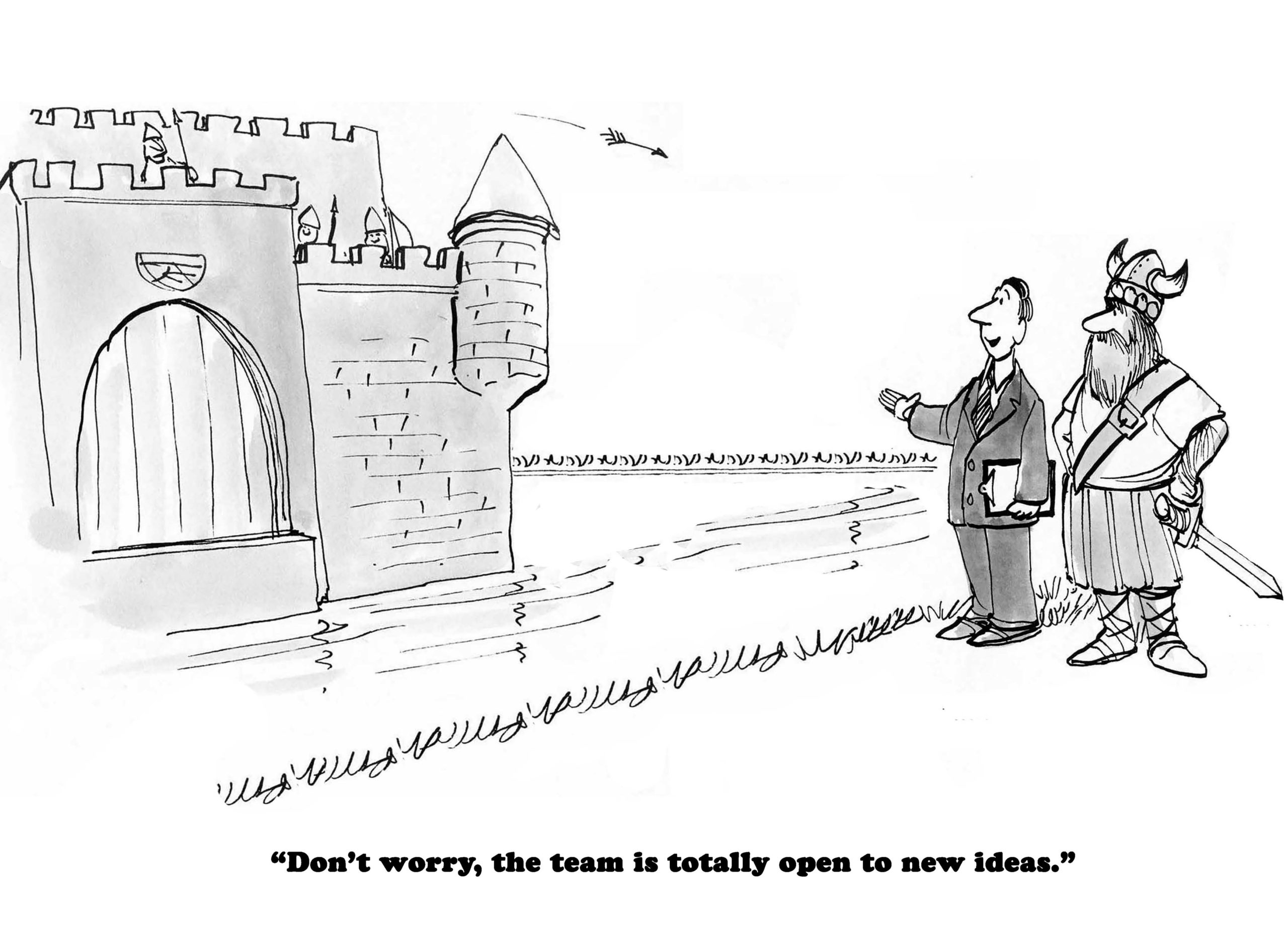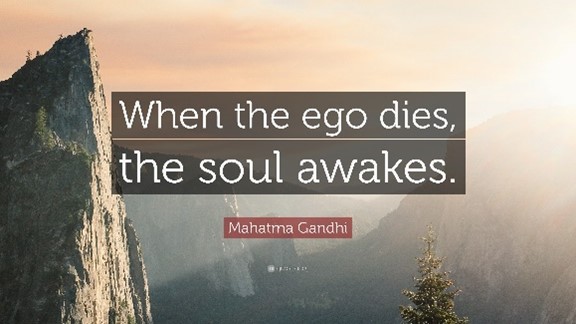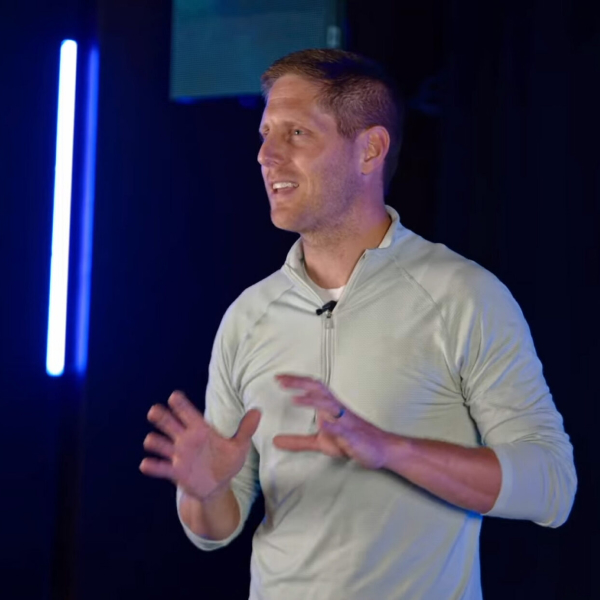Imagine going to an executive team and telling them that they all need to lose weight. How do you think they are going to respond to that?

Now, of course, you are going to do this is the most tactful way possible. You are going to explain all of the benefits of eating healthy, exercising, and being at a more ideal body weight. And, quite frankly, the evidence for losing weight is limitless and profound. You will likely be able to explain that losing weight will add years to their life, make them feel better in the moment, and reduce their likelihood of heart disease, cancer, you name it.
Still, how is this going to go over? How many of the executives are going to think to themselves: “You are right, I need to lose weight,” and then do what losing weight actually requires: transforming both themselves and how they are living?
I don’t know about you, but I am rather pessimistic about the likelihood of these executives transforming themselves and their lives such that they go on to lose weight.
Is there any difference when you focus on mindsets?
Isn’t focusing on mindsets with an executive team essentially the same?
Both involve inviting the leaders to:
- Deepen their self-awareness
- Become more conscious of what they are putting into their bodies
- Transform themselves
- Transform how they are living
And, there are comparable benefits. Shifting one’s mindsets will lead to:
- Being more psychologically healthy
- Improved thinking and processing
- Functioning more effectively
- Add greater energy to one’s life
- Greater influence and success
Finally, at a foundational level, both require a transformation.
Interested in Your Insights
This leads me to wonder: If helping leaders and employees shift their mindsets is like helping them lose weight, how might thinking about how to go about helping leaders to lose weight alter how you work with these leaders and employees to improve their mindsets?
I am legitimately asking for your input.
Is it even helpful to think about it in this way?
When this idea first popped in my head, my first thought was: “I would never go into an organization and tell them all that they need to lose weight.” Not because there isn’t value to it, but because I believe that few, if any, would:
- Be receptive to the message
- Internalize the message
- And, actually go about transforming their lives
I ask, because I will soon be meeting with an executive team who I am told “will not be receptive to the message that they need to focus on and change their mindsets.”

If I think about how I might approach them with this question, “What would I have to do to help them be receptive to the message that they need to lose weight?”, should that help me in coming up with an approach that would help this group of executives see the need to change their mindsets and then actually go through the efforts to transform their mindsets?
If you have any thoughts on this, comment your insights below or send me an email.
Thank you in advance.











13 Responses
This is a great analogy, Ryan! This is something I struggle with within my work, as well. Something I learned about recently is that the Default Mode network allows us to have more emotional self-awareness, social cognition, and openness to new ideas, and this can be activated through Positive Emotional Attractor Coaching or coaching with compassion/relational coaching. This creates safety and trust and therefore allows for increased motivation to change. One of the ways I point out the need for mindset change is to show them their own brain as it relates to personal results they are trying to achieve. I believe that if we can prime with a personal purpose, ask them what their dreams and aspirations are, intentions and goals, and what their results have been, so far. If they are trying to lose x amount of weight in the analogy and they aren’t getting there – asking what their thoughts are about the result? Our results always prove our original thoughts/mindsets/beliefs. Showing them that their inner self-image is driving their external results and then channel this knew knowledge toward their leadership.
Ariana, great points. Doing an activity like what you suggest has been really helpful for many leaders that I work with. But, there are some that are very resistant to doing this type of work.
Ryan, this is a great question, one I’ve wrestled with in the past and, to some degree, still do every day.
My wife has what I describe as a fad diet cycle: every few years she becomes dissatisfied with her weight, as well as all that comes with it and wants us to go on a diet of her choosing. She wants me to want the same thing she wants at the same time (the agreement “I do” really meant on our wedding day 30 years ago). I give her credit for the research she does. While she chooses a different, albeit branded approach to dieting each cycle it is always science-based and sound. The cycle is the problem. She never commits to a changed lifestyle, only to the new diet for a time. Her goal is weight loss, not lifestyle or behavior change.
I have a different challenge in her diet cycle. I am fully aware that I have to “want” to diet; therefore, I have to want the consequences of change; therefore, I have to want the journey and not just the results – the necessary behavior not just the outcome. These are not shifts in desire that I can make in the moment she comes to me with her latest urge and plan to lose weight. It takes me time to process and acknowledge my “yes” is made with authentic agency and ownership of the process and the results. I have to establish my own meaningful “why.” (I also have to want to believe she will approach the weight loss “this time” as a lifestyle change involving eating and physical habits and impulses, not just another cycle, but I won’t go into that here!)
Why should leaders want to change their mindsets? The question’s danger is in the “should.” Instead, why would they want to change mindsets? And why not? What are the rewards if they change mindsets? What are the consequences of staying the same? You can provide sound research data and qualitative examples but, ultimately, they must provide their own answers to “What’s at stake?”
I need to answer on my own terms “What is at stake?” to join my wife in a diet plan. I need to answer on my own terms “What is at stake?” to join in any effort to change my mindsets.
We are all observers of the world and we have three choices: 1) we can allow our circumstances to define the possibilities we consider and the choices we can make; 2) we can accept our circumstances (our SWOT analysis) for how we see it and brainstorm to choices and actions we can take to get different results from our circumstances; or 3) we can “see” our circumstances from new perspectives, which exposes choices that only moments earlier seemed impossible. I choose to live and work in what I call “Choice #3” as often as I can, whether it is choosing a change is eating and exercise habits or mindsets and the results I am getting from my mindsets. The key difference in Choice #3 is our perspective, our mindset. If effect, it takes a bit of an open mindset to have an open mindset about changing mindsets.
“Choice #3” is how I approach the message you are pondering. It is how I help leaders make the business case for change – and any change requires a shift in mindset. Through coaching I help them see their current circumstances and desired results from a new perspective; I help them take ownership and agency around their desired results and the journey to achieve them; I help them learn to see the space that exists between “just beyond their reach” and “the horizon of what they believe is possible…” then live into that new space based on their expressed desire for change.
I like that approach: invite them to look into the future.
As a coach, I never tell or even suggest to my clients what they need to do to change. They already know they’re floundering; they just don’t know why. I merely ask question after question until they see their thinking and say their thoughts out loud, realize how their beliefs make them feel, then decide if they want to keep their ideas about stuff or adopt new ways of looking at the same circumstance that help them achieve better results. If you’d like an example, talk to me. I’ve got tons. 🙂
Thank you, Jill. One of my biggest challenges is working with people that are floundering, but they personally don’t think that they are. I am finding this much more common amongst executives. Generally, in these instances, they are doing well in terms of business metrics, but where they are floundering is in the culture they are creating amongst their people. So, to them, they aren’t floundering. But, everyone around them is worried that they are creating an environment that will inhibit future success.
Ryan, the moment I read the title, Leader: You need to Lose Weight, I was intrigued and wanted to know more. It is a bold statement. I think that the approach would be amazing. I can imagine standing up before a group of leaders and telling them, “I am really excited to be with you today. I just lost 150lbs”. I can imagine that everyone would be very excited and happy for me. But, then, I get to explain that I lost it by letting go of a mindset that paralyzed me and kept me weighted down. Just like your heading, I believe that everyone will want to know more. Good luck to you!
Interesting question, to be sure. We know that often people are unable to answer the question “What do you want?”, but when properly positioned and teased out the person needing to lose weight may talk about things like having more energy to play with their kids, or to be around to walk their daughter down the isle kind of thing. From there, the question “Why don’t you have it?” can bring sincere introspection – i.e. a telling of self-defeating behaviors. Having raised this level of self-awareness (or more accurately, admitting/owning it), the opportunity to discuss changing mindsets to change outcomes becomes of interest.
Relating that to a leadership circumstance, there does seem to be a parallel – What do you want? Why don’t you have it? Share a Heavy Revy with the client – What you think about you bring about. i.e. The lack they are currently experiencing.
Solution? Change your focus. Change you mindset…
All that to say, the Why is always greater than the What. Get really clear on the Why (walking my daughter down the isle), and use that as fuel to help them with the How (mindset shift), to realize the desired outcome – the What (improved health).
Thoughts?
Pressing On,
Chuck
Great thoughts, which spurred something for me… Asking this question: “What do you currently not have that would make your life better and easier?” I could even invite them to explore whether or not they have even pondered that question before and how easy/difficult it is for us to see our blind spots.
If they don’t see the benefits of changing their mindset; and if they don’t believe that the benefits are beneficial, they won’t change the mindset. And that’s ok.
I think this is an area where I feel stuck. I have a hard time being “ok” when leaders are unwilling to explore their mindsets, and go on operating in a way that is often oppressive to employees.
As a scientist and leader, I frequently try to frame things as experiments rather than mandates. That way, they know they can collect data and make a go/no-go decision down the road about a new approach based on the results they see. In this case, I’d probably try the following: (1) Ask them to recall a time they made a change or did something they were told (or knew) was for their own good and it was genuinely beneficial. This helps set the expectation that there really could be a good result and helps break down kneejerk resistance. (2) Bring data (not opinions) that indicate what benefit that good result would bring for the business – retention, higher profits. etc. – whatever is going to be most meaningful to them and their business. (3) Put a timeframe on the experiment – long enough to get meaningful data, but short enough to be something people can commit to.
I like this. Have them revisit past shifts!